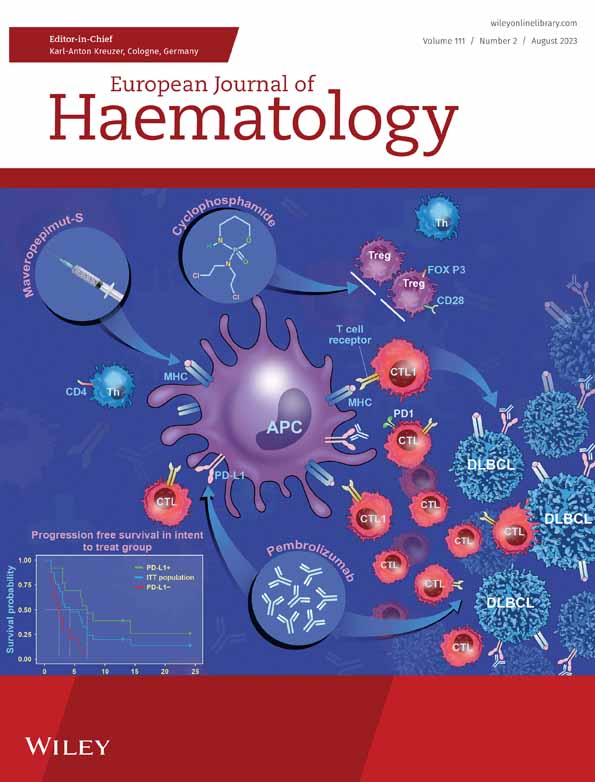Treatment in patients with acute myeloid leukemia/high-risk myelodysplastic syndrome with hypomethylating agents: Day-hospital management compared to home care setting
Abstract
Objectives
Aim of the study was to evaluate the role of a Domiciliary Hematologic Care Unit (DHCU) compared to standard DH setting in the active frontline treatment with hypomethylating agents (HMAs) +/− venetoclax of frail patients with acute myelogenous leukemia/high-risk myelodysplastic syndromes (AML/HR-MDS).
Methods
All patients with newly diagnosed AML/HR-MDS unfit for intensive care and treated frontline with HMAs from January 2010 to April 2021 were retrospectively included.
Results
Among 112 patients (62 AML/50 HR-MDS), 69 (61.6%) were treated in a standard DH setting and 43 (38.4%) were followed by DHCU, allocated to DH or DHCU by responsible physician. Overall response rate was 29/69 (42.0%) in DH versus 19/43 (44.1%) in DHCU (p = .797). Median response duration was 8.7 months (95%CI 7.0–10.3) in DH versus 13.0 months (95%CI 8.3–17.6) in DHCU (p = .460). Infections were also equally reported. Median overall survival of patients treated in DH was 13.7 months (95%CI 9.9–17.4) compared to 13.0 months (95%CI 6.7–19.3) of patients managed by DHCU (p = .753).
Conclusions
Home care management of HMA is feasible and effective, with results similar to standard DH setting: this approach is thus adequate to offer active therapies in frail patients with AML/HR-MDS considered up to now ineligible.
CONFLICT OF INTEREST STATEMENT
Roberto Latagliata honoraria by Novartis, BMS-Cellgene, Janssen, and Pfizer; all other authors declare no conflicts of interest.
Open Research
DATA AVAILABILITY STATEMENT
The data that support the findings of this study are available from the corresponding author upon reasonable request.




